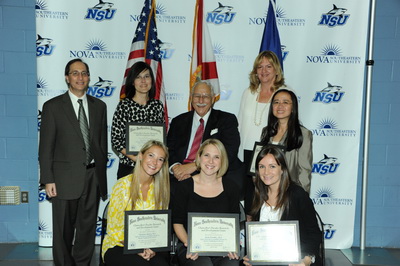Latino Parental Acceptability towards the Human Papillomavirus Vaccine
Grant Winners
- Ana Fins, PhD – Center for Psychological Studies
- Mindy Ma, PhD – Farquhar College of Arts and Sciences
- Diana Formoso, PhD – Center for Psychological Studies
- Linda Kondilis, MS – Center for Psychological Studies
- Giovanna Rivano, BS – Center for Psychological Studies
- Christina Suarez, BS – Center for Psychological Studies
Deans
- Karen Grosby M.Ed. – Center for Psychological Studies
- Don Rosenblum Ph.D. – Farquhar College of Arts and Sciences
Abstract

Human Papilloma Virus (HPV) is associated with sexually transmitted diseases and is one of the leading causes of cervical cancer. Interestingly, Latina women have the highest rate of cervical cancer in the U.S. Currently there is an FDA-approved vaccine designed to prevent HPV infection. It is recommended that the vaccine be administered to females between the ages of 9 and 26. While studies have identified factors that predict parental acceptability to the HPV vaccine, research has failed to adequately focus on Latino populations even though cervical cancer rates are highest among Latina women. The purpose of this study is to assess Latino parents' acceptability of the HPV vaccine for their daughters. The study uses constructs associated with the Health Belief Model which is used to explain factors that influence healthy behaviors. These factors may be associated with parent's acceptability of the HPV vaccine. Additionally, no studies on parental acceptability of HPV vaccine to date have explored the role of acculturation or access to healthcare. As such, this study proposes to evaluate these factors on parental acceptability and intention to vaccinate. The study will recruit 150 parents of daughters between the ages of 9 and 17 who identify as Hispanic or Latino. Participants will be recruited at Hispanic Unity, a non-profit organization that provides social services to the Latino community. Participants will complete a series of instruments designed to assess their acceptability of the vaccine, their intention to vaccinate daughter, acculturation, access to healthcare and the factors theorized by the Health Belief Model to predict health behaviors. Results from this study may help elucidate barriers to parental vaccine acceptability and help inform the development of interventions that can increase parental acceptability of the vaccine and enhance intention to vaccinate among Latino parents.